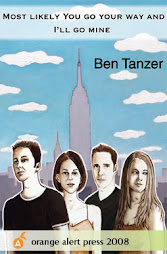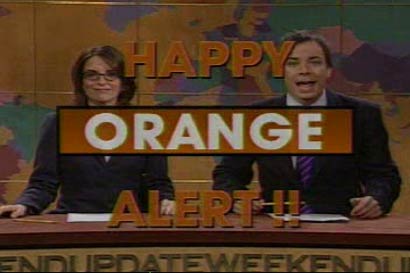
Robert Duffer
Things are always more complicated then they seem, and in the world of publishing complication leads to delay. Was there ever a time or will there ever be a time when a writer writes a novel has it printed and sends it off to his or her readers? The world of big time advances, book store window displays, national advertising campaigns has made it nearly impossible for the new writer to find an outlet for their work. It takes dedication, confidence, and a lot of sleepless nights rewriting and editing to see your dreams come to life.
Chicago writer Robert Duffer is accomplished in many aspects of his life, as a father, a husband, a teacher, a freelance writer, and a published short story writer. He has taught in the Creative Writing Department at Columbia College Chicago, where he earned his MFA, since 2004. However, he has been working on getting his debut novel, A Place to Call Home, published for the last three years. There has been a few revision, and now he is ready to put this project behind him, share this story with the world and move on.
Recently, Robert was kind enough to answer a few of my questions.
Orange Alert (OA): Excerpts from your novel, A Place To Call Home, have been printed in various location, but the entire book remains homeless. What can you tell us about your novel?
Robert Duffer (RD): 22-year old Tom Macklin wanders around the country by foot and by car, picking up jobs and using people when necessary. A chance call to his brother uncovers that his siblings are selling the house they grew up in, the house their mother died in one year ago. He promises to return and face his past, his family, and who he is now. The road becomes increasingly hostile and Tom is running out of money, means, and options.
An excerpt is due out in Annalemma and other excerpts are under consideration elsewhere.
What I can tell you is that I've been working on it for too damn long, on and off, in fits and starts. I suppose it's encouraging that it—and my writing—has gotten much better. When I finished the first draft, three years ago, I sent it out prematurely to agents who responded appropriately. After another rewrite, I was about to send it out again, sure that it was the best book it could be. Then I started reading it to my wife. It was clunky. She reminded me to be patient, I said it's been seven years. I'm going through it again and I love it like I hate it. This is the most confident I've been with it and the most exhausted.
I've started two other novel-length projects that I'm eager to get back to, as well as tending to my freelancing, essays, short stories, parenting, teaching, and husbanding.
OA: With advancement in technology and the availability of print-on-demand capabilities, and the easy-of-use of paypal, etsy, and lulu, is there still a need for publishers?
RD: Publishers will always be around and will be the biggest impediment to print-on-demand. I love the idea of an independent bookstore being able to print off copies of any book but I can't fathom the rights issues and how everyone involved will get their cut. The current publishing/distribution model is broken. In what other industry can a retailer return the product it doesn't sell? The big publishers pay big dollars to promote its books at the front of the big bookstores. Print-on-demand will give the reader more options but those options will be so muddled by all the available titles. There will always be a need for marketing books and getting them in the hands of readers.
The publishing industry technologically operates a century behind other industries but with the popularity of hand-held readers and print-on-demand technology, they will soon be forced to catch up with what readers demand. It'll take a pioneering Net-Flix type publishing equivalent to force the industry to catch on. Maybe its up to the writers to cut out all the middlemen.
OA: What are your thoughts on the writer as self-promoter? How far is too far when trying to make a name for yourself?
RD: It has to be done, as in any other profession. If you're not promoting yourself, who will? Uncle Bob? It's the writer's job to make people care about what you're saying—that includes self-promotion. Signing with an independent publisher will require a lot of self-promotion. A big publisher may be releasing your book along with 400 other titles in the same month so you may have more success with Uncle Bob.
James Frey is too far. If no one will publish your fiction, you can't just call it nonfiction to sell it. I don't blame him as much as the idiot editor, though. You've gone too far if you wake up naked in a hotel lobby with pig tattoos on your nipples.
OA: You have several other projects going on, how did you get involved with 848 and what has that experience been like for you?
RD: I got in the car Monday night and I was on the radio. I cringe a lot less when I hear my voice now. The experience has been enlightening. That short form of 500 words—the emphasis on word choice, concision, slashing good phrases that don't necessarily serve the piece—all of it is great exercise to take into longer forms.
The first few pieces I submitted didn't warrant even a courtesy rejection. There was nothing. Then one piece landed and now, if the executive producer likes it, I'll record it the next day in a couple takes and its broadcast. That's the most gratifying part: the turn around from writing to broadcasting—it can be a matter of days. That's another reason why I like freelancing. Pitch it, write it, send it, print it. It's done.
OA: Do you feel that there is an emerging Chicago Literary Scene? What are your thoughts on the current opportunities out there for Chicago writers?
RD: Opportunities abound if you're willing to put yourself out there. The writer-as-lone-wolf stereotype doesn't apply to what happens after you're done writing something. Writing is easy; publishing is hard. Getting involved in the community—hell, creating a community, makes it a lot easier.
I encourage anyone curious about writing to attend any of the dozen readings that happen every week in Chicago, crash book release parties, dare yourself at open mics, be vulnerable and be willing to learn. And my goodness, read what your local writers are writing.
The Chicago literary scene is solid: there's a handful of indie book publishers, newbies like featherproof books and OV books, and established ones like ACM and Lake Claremont Press. What it lacks in a publishing industry network of editors, agents and publishers, like New York or even Minneapolis, it makes up for in writers writing and performing.
OA: What's next for Robert Duffer?
RD: RUI (reading under the influence) is the first Wednesday of every month.
Things are always more complicated then they seem, and in the world of publishing complication leads to delay. Was there ever a time or will there ever be a time when a writer writes a novel has it printed and sends it off to his or her readers? The world of big time advances, book store window displays, national advertising campaigns has made it nearly impossible for the new writer to find an outlet for their work. It takes dedication, confidence, and a lot of sleepless nights rewriting and editing to see your dreams come to life.
Chicago writer Robert Duffer is accomplished in many aspects of his life, as a father, a husband, a teacher, a freelance writer, and a published short story writer. He has taught in the Creative Writing Department at Columbia College Chicago, where he earned his MFA, since 2004. However, he has been working on getting his debut novel, A Place to Call Home, published for the last three years. There has been a few revision, and now he is ready to put this project behind him, share this story with the world and move on.
Recently, Robert was kind enough to answer a few of my questions.
Orange Alert (OA): Excerpts from your novel, A Place To Call Home, have been printed in various location, but the entire book remains homeless. What can you tell us about your novel?
Robert Duffer (RD): 22-year old Tom Macklin wanders around the country by foot and by car, picking up jobs and using people when necessary. A chance call to his brother uncovers that his siblings are selling the house they grew up in, the house their mother died in one year ago. He promises to return and face his past, his family, and who he is now. The road becomes increasingly hostile and Tom is running out of money, means, and options.
An excerpt is due out in Annalemma and other excerpts are under consideration elsewhere.
What I can tell you is that I've been working on it for too damn long, on and off, in fits and starts. I suppose it's encouraging that it—and my writing—has gotten much better. When I finished the first draft, three years ago, I sent it out prematurely to agents who responded appropriately. After another rewrite, I was about to send it out again, sure that it was the best book it could be. Then I started reading it to my wife. It was clunky. She reminded me to be patient, I said it's been seven years. I'm going through it again and I love it like I hate it. This is the most confident I've been with it and the most exhausted.
I've started two other novel-length projects that I'm eager to get back to, as well as tending to my freelancing, essays, short stories, parenting, teaching, and husbanding.
OA: With advancement in technology and the availability of print-on-demand capabilities, and the easy-of-use of paypal, etsy, and lulu, is there still a need for publishers?
RD: Publishers will always be around and will be the biggest impediment to print-on-demand. I love the idea of an independent bookstore being able to print off copies of any book but I can't fathom the rights issues and how everyone involved will get their cut. The current publishing/distribution model is broken. In what other industry can a retailer return the product it doesn't sell? The big publishers pay big dollars to promote its books at the front of the big bookstores. Print-on-demand will give the reader more options but those options will be so muddled by all the available titles. There will always be a need for marketing books and getting them in the hands of readers.
The publishing industry technologically operates a century behind other industries but with the popularity of hand-held readers and print-on-demand technology, they will soon be forced to catch up with what readers demand. It'll take a pioneering Net-Flix type publishing equivalent to force the industry to catch on. Maybe its up to the writers to cut out all the middlemen.
OA: What are your thoughts on the writer as self-promoter? How far is too far when trying to make a name for yourself?
RD: It has to be done, as in any other profession. If you're not promoting yourself, who will? Uncle Bob? It's the writer's job to make people care about what you're saying—that includes self-promotion. Signing with an independent publisher will require a lot of self-promotion. A big publisher may be releasing your book along with 400 other titles in the same month so you may have more success with Uncle Bob.
James Frey is too far. If no one will publish your fiction, you can't just call it nonfiction to sell it. I don't blame him as much as the idiot editor, though. You've gone too far if you wake up naked in a hotel lobby with pig tattoos on your nipples.
OA: You have several other projects going on, how did you get involved with 848 and what has that experience been like for you?
RD: I got in the car Monday night and I was on the radio. I cringe a lot less when I hear my voice now. The experience has been enlightening. That short form of 500 words—the emphasis on word choice, concision, slashing good phrases that don't necessarily serve the piece—all of it is great exercise to take into longer forms.
The first few pieces I submitted didn't warrant even a courtesy rejection. There was nothing. Then one piece landed and now, if the executive producer likes it, I'll record it the next day in a couple takes and its broadcast. That's the most gratifying part: the turn around from writing to broadcasting—it can be a matter of days. That's another reason why I like freelancing. Pitch it, write it, send it, print it. It's done.
OA: Do you feel that there is an emerging Chicago Literary Scene? What are your thoughts on the current opportunities out there for Chicago writers?
RD: Opportunities abound if you're willing to put yourself out there. The writer-as-lone-wolf stereotype doesn't apply to what happens after you're done writing something. Writing is easy; publishing is hard. Getting involved in the community—hell, creating a community, makes it a lot easier.
I encourage anyone curious about writing to attend any of the dozen readings that happen every week in Chicago, crash book release parties, dare yourself at open mics, be vulnerable and be willing to learn. And my goodness, read what your local writers are writing.
The Chicago literary scene is solid: there's a handful of indie book publishers, newbies like featherproof books and OV books, and established ones like ACM and Lake Claremont Press. What it lacks in a publishing industry network of editors, agents and publishers, like New York or even Minneapolis, it makes up for in writers writing and performing.
OA: What's next for Robert Duffer?
RD: RUI (reading under the influence) is the first Wednesday of every month.
The sun is out. I'm getting beer.
Bonus Questions:
Bonus Questions:
OA: Coffee? If yes, what is your favorite type of coffee and where is your favorite coffee spot?
RD: I never drank coffee—always tea—until I had kids. It started with espresso. I still prefer tea but sometimes there's no substitute for coffee. I drink it neat like whiskey. McDonalds has better coffee than the coffee chains.
OA: What type of music do you enjoy and who are a few of your favorites?
RD: I'm embarrassingly out of the loop. I need to check out some of the musicians on your site. Recent listens are The Killers, The Redwalls new one, Wilco's Sky Blue Sky is one of the best full albums I've heard in years. Other than that it's the theme song to Thomas the Tank Engine and the Wiggleworms.
For more information on Robert Duffer and to read an excerpt from his novel please visit his website.
RD: I never drank coffee—always tea—until I had kids. It started with espresso. I still prefer tea but sometimes there's no substitute for coffee. I drink it neat like whiskey. McDonalds has better coffee than the coffee chains.
OA: What type of music do you enjoy and who are a few of your favorites?
RD: I'm embarrassingly out of the loop. I need to check out some of the musicians on your site. Recent listens are The Killers, The Redwalls new one, Wilco's Sky Blue Sky is one of the best full albums I've heard in years. Other than that it's the theme song to Thomas the Tank Engine and the Wiggleworms.
For more information on Robert Duffer and to read an excerpt from his novel please visit his website.
+by+Nick+Volkert).jpg)





















2 comments:
Duffer,I agree with your opinion of Wilco's Sky Blue sky, i as well think it is the best album i have heard in years. Interesting that you mention that album.
-Josh, posting from over by Jamalia estates
duffer rocks.
i'm still real scared of the world what with learning to write costing lots of borrowed money and offering little in the way of ever paying it back at the risk of bankrupting myself and then my parents...
but duffer makes it feel a lil better.
Post a Comment